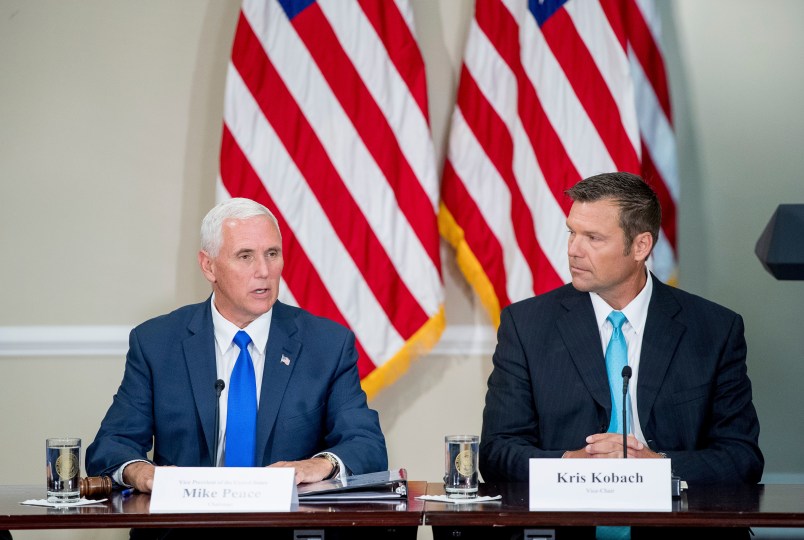A think tank that specializes in voting rights filed a lawsuit Monday seeking more information about communications between various government agencies and President Trump’s so-called “elections integrity” commission. The complaint brought by Brennan Center for Justice at NYU School of Law, along with the group Protect Democracy Project, alleges that the agencies did not respond to previous Freedom of Information Act requests they filed concerning Trump’s election commission.
“This administration has a troubling pattern of keeping public information from the public — a pattern that is continuing with this commission,” Wendy Weiser, director of the Brennan Center’s Democracy Program, said in a press release announcing the lawsuit. “The government’s obligation to share this information is especially important when there are so many reasons to be skeptical of this commission. When the public is not able to oversee the work of a presidential panel like this, there is a risk of abuse, which could negatively impact voting rights across the country.”
The complaint comes as the commission is expected to meet again next month. At the commission’s first meeting last month, the commission members discussed seeking data from various federal agencies that they say they will use to study voter fraud. Even before its first meeting, the commission’s vice-chair, Secretary of State Kris Kobach, had issued a broad request to state officials seeking information about their voter rolls.
The Brennan Center and the Protect Democracy Project, in their lawsuit, seek responses to FOIA requests filed in May at the Department of Justice, the Department of Homeland Security and the Office of Management and Budget. According to the complaint, the groups filed FOIA requests at the three agencies seeking communications between agency staff and commission members, as well as documents concerning the mission and goals of the commission.
The lawsuit argues that many members of the commission have “have long records of championing measures that impede eligible voters from participating in elections.”
“On information and belief, the Commission was also created to justify legislative changes to impose new barriers to exercising the franchise,” the lawsuit says.
According to the complaint, the FOIA requests were acknowledged by the agencies but the agencies have not followed up on making a determination about complying with the requests. Under the Freedom of Information Act, agencies have 20 business days to inform those requesting records whether they’ll be complying with the request, and if not, give reasons why. The DHS did ask for a 10-day extension within that period, but has not followed up since, according to the lawsuit.
“Defendants are in violation of FOIA by failing to respond to Plaintiffs’ requests within the statutorily prescribed time limit and by unlawfully withholding records responsive to Plaintiffs’ requests,” the lawsuit alleges.
Read the full complaint below:










